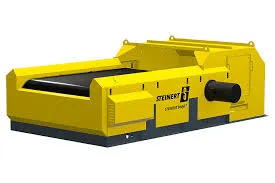

ডিসে. . 10, 2024 00:10 Back to list
How to Recycle Computer Boards A Comprehensive Guide
In today's technology-driven world, electronic devices are ubiquitous. Computers, with their intricate circuitry, play a vital role in our daily lives. However, the rapid evolution of technology leads to the obsolescence of older devices, culminating in a pressing question what to do with discarded computer boards? Recycling computer boards is not only environmentally responsible but also economically beneficial. This guide will walk you through the steps of recycling computer boards effectively.
Understanding the Importance of Recycling Computer Boards
Computer boards, or motherboards, contain a variety of materials, including metals like copper and precious metals like gold, silver, and palladium. These materials can be recovered and reused, significantly reducing the need for new mining and processing, which can harm the environment. Additionally, electronic waste (e-waste) is one of the fastest-growing waste streams in the world, with serious implications for health and the environment if not disposed of properly. Hence, recycling computer boards helps mitigate pollution and conserves natural resources.
Steps to Recycle Computer Boards
1. Preparation Before recycling your computer boards, it’s essential to prepare them properly. Disconnect all components, including power supplies, cards, and peripherals, from the motherboard. This not only makes the recycling process easier but also ensures that you’re recycling only the board itself, maximizing its value.
2. Identify Local Recycling Centers Start by identifying local recycling centers that accept electronic waste. Many municipalities offer e-waste recycling programs or events. You can use websites like Earth911 or call local waste management authorities to find certified e-waste recycling facilities in your area.
3. Consider Specialized E-Waste Recyclers Some companies specialize in the recycling of electronic components and may offer better services than general recycling centers. These facilities often have the technology and processes in place to recover precious metals and other valuable materials from computer boards efficiently. Check for certifications such as e-Stewards or R2, which indicate responsible recycling practices.

4. Shipping Your Computer Boards If local options are limited, consider mailing your computer boards to a specialized recycler. Many recyclers provide shipping labels or accept shipments for a small fee. Make sure to package the boards securely to avoid damage during transit.
5. Removing Hazardous Materials While most computer boards can be recycled, some components may contain hazardous materials that require special handling. Avoid taking apart any components like batteries or CRT screens unless you are knowledgeable about their proper disposal. Inform your recycling center about any potentially hazardous materials you may encounter.
6. Documentation and Compliance Ensure that the recycling facility complies with local, state, and federal regulations regarding e-waste disposal. Keeping a receipt or documentation of the recycling process can also be beneficial, especially for businesses that need to comply with environmental regulations.
7. Explore DIY Recycling Options For those with a do-it-yourself mindset, there are ways to recycle computer boards at home. However, this requires knowledge of chemical processes and safety precautions. Techniques such as acid leaching or smelting can recover precious metals, but these practices can be hazardous and are generally not recommended for untrained individuals.
8. Educate Others Finally, one of the best ways to promote responsible recycling is to educate others. Share the importance of recycling electronic waste and the steps to do so with friends and family. By raising awareness, you contribute to building a community of environmentally conscious individuals.
Conclusion
Recycling computer boards is more important than ever in the face of growing electronic waste. By properly preparing, identifying the right recycling channels, and understanding the materials involved, you can significantly reduce the ecological footprint of your discarded electronics. Not only does this practice help in recovering valuable resources, but it also fosters a more sustainable environment. Take the initiative today to recycle your computer boards and encourage those around you to do the same. Together, we can make a difference in managing our electronic waste wisely.
Latest news
Troubleshooting Common Eddy Separator Problems
NewsJul.04,2025
The Role of Metal Recycling Plants in Circular Economy
NewsJul.04,2025
The Impact of Recycling Line Pickers on Waste Management Costs
NewsJul.04,2025
Safety Features Every Metal Shredder Should Have
NewsJul.04,2025
How Industrial Shredders Improve Waste Management Systems
NewsJul.04,2025
How Cable Granulators Contribute to Sustainable Recycling
NewsJul.04,2025